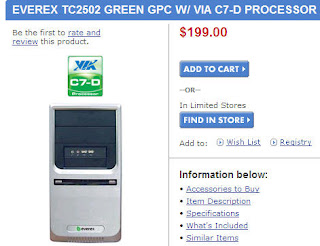
Maybe some of you already agree that "Swiss Army knife" mobile platforms have to make compromises. And one of the compromises is ease of use. There's just so much complexity a user can put up with before the alternative--a simpler device--starts to make sense. And we are getting there.
Sure, you have to carry multiple devices. But think about it: most of us already do that, and as nice as one device would be, choosing between a notebook and a mobile phone or email device is too tough a choice. I carry two or three communications devices everywhere, if on the move. And then an iPod Shuffle for music. For short periods of time I will make do with either an email device or a smart phone in the pocket. But the other devices are there.
If an airplane is involved; if I am going to be "out of town," two is the minimum number of devices, and I usually carry three. Yes, it is a hassle. But so is restriction to one device. So far at least, three is the irreducible number.
And there might be a consumer backlash coming even from the ranks of users who don't have to "run and gun" with heavy text entry. Universal McCann's European office has surveyed 10,000 Internet users in 21 countries and found that demand for a convergent device such as the iPhone is actually pretty low, at least in the U.K. market.
About 41 percent of the 500 Britons surveyed expressed an interest in owning a converged mobile handset, on par with France and South Korea. Interest in Japan, Taiwan, the U.S. market and Germany was even lower, with only 27 percent of Japanese respondents expressing an interest. Now, those are significant numbers for Apple, to be sure.
The interest was greatest in Mexico at 79 percent and similarly high in other developing markets, including Brazil and Malaysia at 72 percent and India at 70 percent. The point is that these are markets where the smart phone will be the PC. The irreducible number there is one.
In the U.K. market, most people already own a mobile phone and one or more of the devices that the iPhone could replace, with 24 percent of respondents owning five or more devices. For example, 82 percent of Britons own a mobile phone and 48 percent own an MP3 player, the research suggests.
There is demand for new services. Some 48 percent said they would like iPod video capabilities on their mobile phone.
About 43 percent said they wanted wireless Internet capability and 28 percent want audio-only iPod functionality.
Convergence is in many ways a compromise driven by financial limitations, not aspiration. In the markets where multiple devices are affordable, the vast majority would prefer that.
Up to a point, multiple features are important. It's a simple example, but the 5-megapixel camera on a Nokia N95 is way better than no camera or a 2-megapixel camera on a BlackBerry.
The point is that there is a limit to how much complexity and how many trade-offs a user is going to put up with to have "just one device."
And then there are the cultural issue. I think we are reaching a point where "always connected" has to be balanced. "Real," as opposed to "digital" life is going to start looking really attractive at some point. I think the move already has begun.
"Unconverged," indeed "not digital, not connected" pursuits are going to be seen as more interesting, as the pendulum starts to swing back. When "connected" starts to become a burden, people will "unconnect." When "convergence" starts to become too complex, with too many trade-offs, people will "uncoverge." Just watch.








